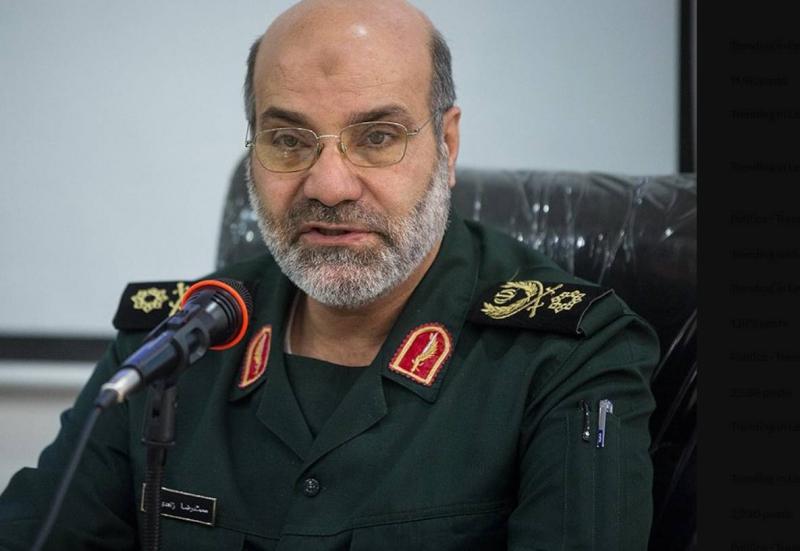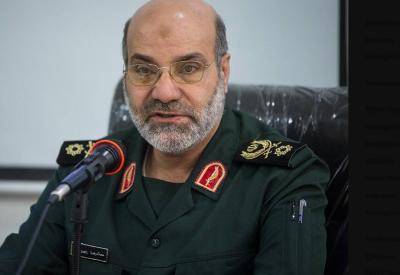After several media reports and information indicated that Tehran was concerned about breaches in Syrian security apparatuses that helped Israel assassinate elite Iranian Revolutionary Guard generals, including the strike on a building annexed to the Iranian embassy in Damascus which resulted in the death of the Revolutionary Guard's commander in Syria and Lebanon, General Mohammad Reza Zahdi, and his aides, a source in the "Quds Force" revealed that Syrian security agencies recently provided Tehran with information indicating that the leaks that aided in Zahdi’s assassination came from Iranian elements within the Tehran embassy in Damascus. The source, who was very close to Zahdi, informed "Al-Jarida" that "Zahdi's visit to Syria was aimed at personally receiving a highly classified file from elements he had personally chosen to investigate the assassination of General Qassem Soleimani in the American strike in 2020, as well as the assassinations that targeted other leaders of the Revolutionary Guard in the region."
The source added that the disclosure of this file could lead to the downfall of many senior political and military officials in Iran, to the extent that Zahdi decided to defy doctors' orders against traveling due to his health condition, to personally receive the file and deliver it to Supreme Leader Ali Khamenei upon his return. He indicated that Zahdi requested the Iranian consul in Damascus and the diplomats at the embassy to evacuate the building so that the collaborating elements or the information they obtained would not be revealed due to its confidentiality and seriousness. He even asked the Iranian ambassador in Damascus not to come to his residence on the upper floor of the building before the meeting ended.
Furthermore, the source continued, "Zahdi asked some of his trusted and loyal Revolutionary Guard elements to guard and monitor the building to prevent anyone from entering during the meeting," noting that one of these elements, who survived the Israeli attack, conveyed many of these details to him. He pointed out that from the first day of Qassem Soleimani's assassination, there were suspicions of involvement from powerful internal parties, especially since Soleimani's popularity had peaked, overshadowing senior Guard leaders, and there was a significant possibility that he might run for the presidency, which could disrupt some key politicians and military figures within the Islamic Republic system.
The source explained that the "Quds Force" had obtained audio leaks confirming that former centrist Foreign Minister Mohammad Javad Zarif, on behalf of former centrist President Hassan Rouhani, and former Iranian ambassador to France Sadegh Kharazi, Khamenei's wife’s brother, who is considered a reformist on behalf of former reformist President Mohammad Khatami, had met with Soleimani just a few days before his assassination at Kharazi's home, proposing that he run in the presidential elections and promising him broad support from reformists and centrists, with Khatami and Rouhani willing to back him.
According to these audio leaks, Kharazi and Zarif, who were close friends of Soleimani, assured the late Quds Force commander that extremist conservatives were seeking to monopolize power after Rouhani's term ended, and that the Guardian Council would exclude all strong candidates from the reformist and centrist factions. Based on this, Soleimani’s candidacy, which no one dared to exclude, could save the country from what was to come and maintain balance within the system's structure.
The source added that according to the same leaks, Soleimani rejected the candidacy, emphasizing that his field role was much more critical for serving the system and managing files that no one else could handle. However, Zarif and Kharazi argued that the internal threat was much stronger than the external threat and that control of power by extremists would not only overthrow the Islamic Republic system but could lead to the country’s complete collapse and fragmentation, plunging it into civil war, which meant that all of Soleimani’s external efforts would go to waste.
He stated that after that, Soleimani showed some flexibility and informed Zarif and Kharazi that he was going to Iraq to discuss a matter concerning reducing tensions between Iran's allies and the United States at the request of the Iraqi Prime Minister and would think further on the issue, informing them of his decision upon his return, but he never returned from this trip as he was assassinated at Baghdad airport by an American drone.
The source indicated that Iranian security agencies had arrested an Iranian young man named Seyed Mahmoud Mousavi Majd, who was residing in Syria and working for the Revolutionary Guard, had high reliability with Soleimani, and accompanied him on all his travels, coordinating all of his trips, on charges of leaking information to the Americans about Soleimani's movements. Mousavi Majd confirmed during investigations that he coordinated the necessary information about Soleimani's movements only with some Revolutionary Guard officials and high-ranking diplomatic and security officials within Syria, Lebanon, and Iraq for security reasons, noting that all those whose names Mousavi Majd revealed were assassinated in operations in Syria, Lebanon, Iraq, and Yemen, and that Mousavi Majd himself was executed in Iran on charges of espionage for Israel and the United States.
Despite the insistence of the "Quds Force" agencies to continue investigations, the judiciary led by Ibrahim Raisi ordered the closure of the investigation file regarding the existence of internal leaks on the grounds that these investigations would divert everyone from the main suspect, which is the United States that carried out the operation. The source noted that at that time, the file was handed over to Raisi's assistant for foreign affairs in the judiciary, Ali Bagheri Kani, who is currently the chief nuclear negotiator and assistant foreign minister to oversee it, and orders were issued to the military judiciary that all investigations must be under Bagheri Kani's supervision, preventing all military security agencies from pursuing any file without coordinating with him. The source said that former security minister Mahmoud Alavi, at the behest of Rouhani, who was president at the time, ordered the opening of a secret file to investigate this matter within the Ministry of Security, which was one of the reasons for his exclusion from the Assembly of Experts elections.




